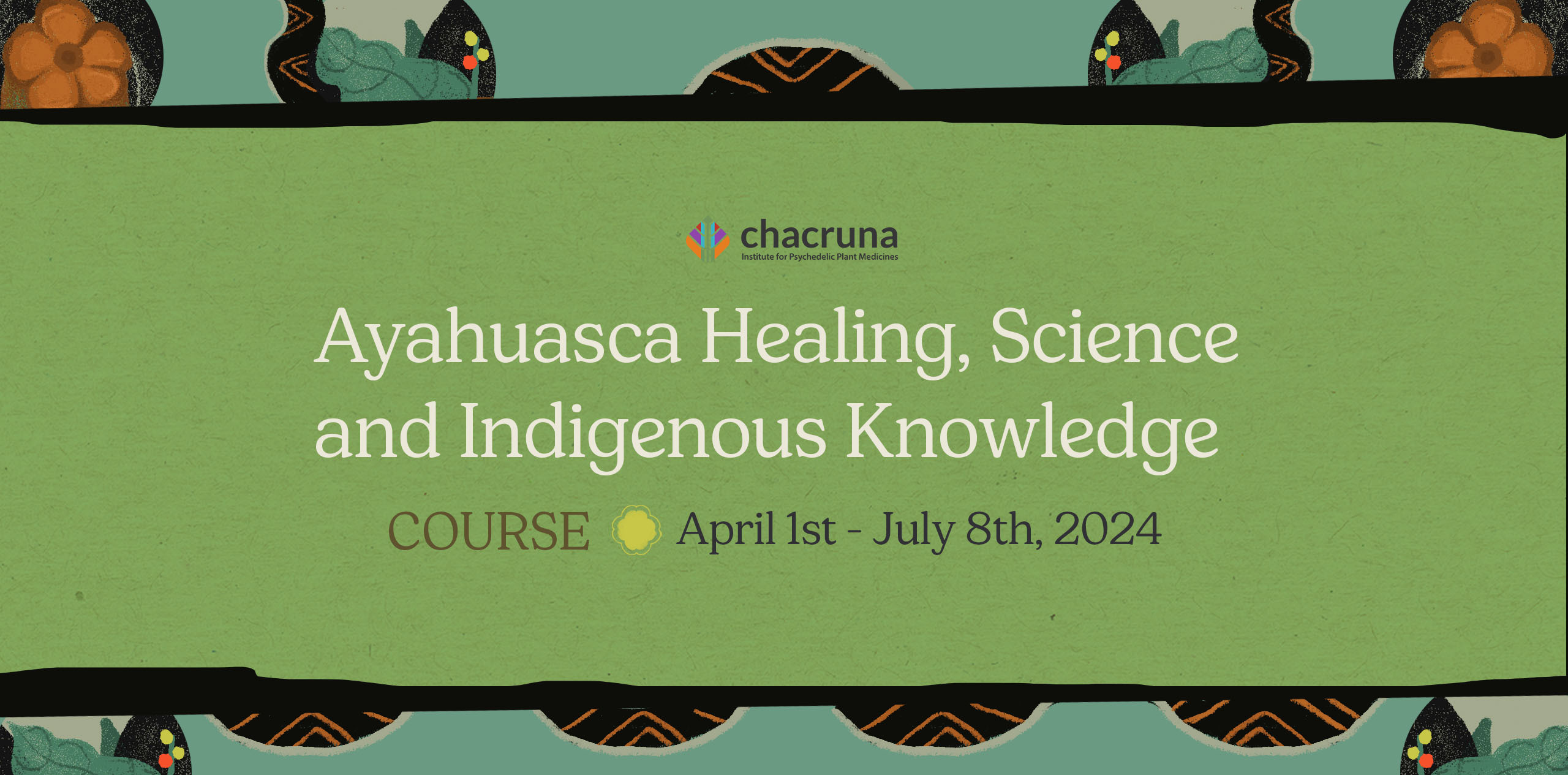- Meet Chacruna at Psychedelic Science 2025 - May 27, 2025
- Psychedelics and Attachment: Fundamentals, Implications, and New Frontiers - May 16, 2025
- Development Outreach Internship (OPEN) - May 6, 2025
April 1st – July 8th 2024, 10:30am-12pm PST/1:30pm-3pm EST
Price $950
Price $480 for CE credits
CE Credits Offered: 24 total
This course will be taught by leading experts in the field of ayahuasca research and renowned Indigenous leaders. The goal of the course is to address the current challenges and new perspectives on the use of ayahuasca in a global context, not only from an academic standpoint but also drawing from Indigenous voices and their experience with ayahuasca. Students will be introduced to current issues on the internationalization of ayahuasca and its impacts. The course will address Amazonian traditional healing modalities; ayahuasca and Western psychotherapy, the commodification of ayahuasca;therapeutic and clinical research; conservation, environmental legislation and the legal framework of ayahuasca worldwide. This course will also be dedicated to honor the voices and experiences of Brazilian Indigenous leaders, addressing issues that are most dear to Indigenous communities that consecrate ayahuasca. Our Indigenous professors will explore the dilemmas posed by western civilization, such as exploitative extractivism, cultural appropriation, and the discredit of ancestral knowledge. They will also talk about ayahuasca shamanism and its role for the political, spiritual and cultural resistance of Indigenous Peoples. This innovative course will bridge the gap between academic and traditional knowledge, connecting the ceremonial use of sacred plants and psychedelic science. Following Chacruna’s tradition, this course will unite a community of kindred people to get together and exchange notes around the most complete and up-to-date debates on ayahuasca and its challenges in current times.
Student Learning Objectives
At the end of the program, participants will be better able to…
- Critique some of the assumptions, narratives, orientations and stories commonly underlying plant medicine scenes as they intersect with healing culture
- Analyze common commercial/popular discourses on ayahuasca. Where do the different elements originate from and what are their theoretical and ideological sources?
- Discuss the impacts and dilemmas of psychedelic capitalism and the commodification of ayahuasca on traditional practices and local communities in the Global South
- Analyze critically the international expansion of ayahuasca and the relationships established between interest groups and stakeholders within this field
- Demonstrate an understanding of the shortcomings of both observational and controlled-laboratory research into ayahuasca
- Discuss the future of ayahuasca, both in terms of research and therapeutic application, and consider the ethical issues associated with these
- Analyze different regulation processes of the religious use of ayahuasca and its controversies.
- Compare the regulation of ayahuasca in Brazil and the United States
- Explain possible ways in which plant teachers may contribute to a psychotherapy process
- Create ways to respectfully integrate different ritual contexts of plant medicines to a psychotherapy process
- Compare Western and Indigenous perspectives on the environment and the importance of preserving Amazonian forests and territories
- Demonstrate the relationship between territory, sacred plants, health, and shamanism among Indigenous peoples
- Describe the basics of biology and ecology of ayahuasca vine
- Critically analyze conservation aspects of ayahuasca vine
- List plants used in the preparation of ayahuasca
- Explain the chemical properties of plants used in the preparation of ayahuasca
- Analyze the harmful impacts of colonization on the ritual practices of indigenous people who are guardians of sacred plants
- Discuss the importance of the cosmologies, philosophies and political struggles of indigenous peoples for the preservation of ayahuasca and other sacred plants and their associated knowledge
- Discuss some of the diverse ways that indigenous people have contributed to the history of psychedelics in different settings
- Critically analyze how Shamanic approaches are being incorporated into the psychedelic renaissance
Information on Continuing Education Credits for Health Professionals
- CE credits for psychologists are provided by the Spiritual Competency Academy (SCA) which is co-sponsoring this program. The Spiritual Competency Academy is approved by the American Psychological Association to sponsor continuing education for psychologists. Spiritual Competency Academy maintains responsibility for this program and its content.
- The California Board of Behavioral Sciences accepts CE credits for LCSW, LPCC, LEP, and LMFT license renewal for programs offered by approved sponsors of CE by the American Psychological Association.
- LCSW, LPCC, LEP, and LMFTs, and other mental health professionals from states other than California need to check with their state licensing board as to whether or not they accept programs offered by approved sponsors of CE by the American Psychological Association.
- SCA is approved by the California Board of Registered Nursing (BRN Provider CEP16887) for licensed nurses in California. RNs must retain their certificate of attendance for 4 years after the course concludes.
- For questions about receiving your Certificate of Attendance, contact [email protected]
- For questions about CE, contact Spiritual Competency Academy at [email protected].
CE Credit Requirements
- Student must be in attendance with their camera on for the entirety of the class session
- Student must be actively participating in the class session (asking questions, contributing to discussion, etc.)
- Student must fill out an evaluation and assessment form at the end of the course, which will be provided by Chacruna
- Collective CE credits will be awarded at the end of the course given that all of the above requirements are met
*please note that you must purchase a ticket for CE credits on Eventbrite in order to receive CE credits
*please note that if you miss a class, you will not be awarded any CE credits and you cannot be refunded for CE credits
*please note that the first and last class do not count towards CE credits
Chacruna Certificate Requirements
At the end of the course, students will have the option to receive a certificate from Chacruna for the completion of this course. In order to receive this certificate, students must complete one of the following options:
A. Submit a final individual paper of 1,800 to 2,000 words, following Chacruna’s Chronicles Guidelines (the best papers will be selected to be published on the Chacruna site) *please note that the 2,000 word count should include footnotes and references; papers that go beyond 2,000 total words will not be accepted.
B. Submit a final group paper consisting of 2,000 words per person (i.e. if there are two people writing the paper, it should be a total of 4,000 words; if there are three people writing the paper, it should be a total of 6,000 words) *please note that the 2,000 word count per person should include footnotes and references; papers that go beyond 2,000 total words will not be accepted.
C. Submit a paper with internal reflection of what you have learned throughout this course
D. Pitch another specific proposal to submit (i.e. mini-documentary, video lecture, creation of a podcast.)
E. Students will have the option to do an art project related to the contents of the course
F. Students will have the option to conduct a “Family History.” This would consist of the student interviewing their family members to contextualize their life and experience, to understand their roots, and also talk about their local community/ lands/ social environment where they came from and/or are located
*Students will also have the option to opt out of receiving the certificate.
* The project submitted must be unique and created specifically for the course; you cannot submit a project that you created previously or submitted elsewhere.
Class Recordings and Lecture Slides Policy
Recordings of the lectures will be sent to the students a week before the class is scheduled to take place.
Lecture slides from the classes may be provided to the students at each professor’s discretion. We encourage everyone to come to each class in-person and on time as we cannot guarantee providing these resources in all circumstances.
You can find more information to Frequently Asked Questions here.
Course Structure
- Students will watch the lecture on their own time
- There will be a live 1.5 hour discussion on Zoom with the professor the following week
Refund Policy click here
Classes
Click on the class to read the description
Class One – Introduction
Monday, April 1st, 2024, 10:30am–12pm PST/1:30pm-3pm EST
Professors: Bia Labate and Lígia Duque Platero
In this initial class, students will introduce themselves to others in the course, be introduced to the professors and their backgrounds, and gain an understanding of the curriculum and program. Students will leave with preparation for the following classes being taught and a general understanding of the topics that will be discussed throughout the course.
Class Two – Deconstructing Healing Culture: Medicalisation, Ontological Caricatures and the New Age
Monday, April 8th, 2024, 10:30am–12pm PST /1:30pm-3pm EST
Professor: Adam Aronovich
Psychedelic experiences and psychedelic facilitation don’t happen in a vacuum. While there’s an overall increase in the awareness of the importance of set and setting, we rarely pay much attention to a critical component: the overarching discourse and narratives that condition experience, interpretation, meaning-making and integration. The recent ongoing medicalization of psychedelics and plant “medicines” have primed many facilitators and providers to align with a hyper-medicalised orientation. We use terms such as “medicines”, “healing” or “doing the work”, not always questioning the assumptions underlying these approaches. In this session we will talk about “Healing Culture” and examine the ideologies, narratives and politics that shape and envelop much of the “work” we do, often unconsciously. From New Age spirituality, Pop-psychology, the marketing of caricature-like versions of indigenous ontologies dressed as “ancestral wisdom”, conspiritual (conspiracy + spiritual) epistemologies and recreational paranoia and all the way to consumerism, loneliness, alienation and the hyper-individualism typical of neoliberalism and late-stage capitalism. We will see why its critical to expand our understanding of “Healing”, and shed light on the intrinsic links between individual and social health, cultural health and environmental health, and where we can draw inspiration from indigenous ontologies without romanticizing or idealizing them.
Class Three – The commodification and internationalization of Santo Daime
Monday, May 15th, 2024, 10:30am–12pm PST/1:30pm-3pm EST
Professor: Glauber Loures de Assis
This class analyzes the expansion and internationalization of the Santo Daime religion from the Amazon to the world, focusing in its controversies and conflicts. The Santo Daime is an ayahuasca Brazilian religion founded in the 1930s. During the 80s, Santo Daime expanded throughout urban centers in Brazil and, in the 90s, around the world. In their process of expansion, Santo Daime communities ended up adopting different identities and strategies. Combining our fieldwork experience in Brazil, the USA, and Europe, we provide an ethnographic account of the different models of organization of daimista congregations and collectives around the world. This class tries to categorize their policies and strategies relating to their survival and expansion, including: means of access to ayahuasca; fees of access for permanent members, outsiders, visitors, and for the visiting comitivas (group of Brazilian religious experts that periodically travel abroad); and the physical spaces, music, cultural exchanges, and other cultural elements that are shared. It analyzes the controversies existing between these different approaches, and the contrasts between ayahuasca as commodity and as a religious sacrament within the Daime network. The class looks critically at the orthodox view that considers religion in opposition to money, and the perspective that fails to recognize problematic aspects in the current transformation of Santo Daime and Brazilian religious expertise into consumption products. We will be taking into account both the need of marginalized Amazonian groups to make alternative means of living, and the impacts that commodification processes might have on these communities.
Class Four – Ayahuasca research under examination: methodological, therapeutic and clinical issues
Monday, April 22th, 2024, 10:30am–12pm PST/1:30pm-3pm EST
Professor: Simon Ruffell
Ayahuasca has shown therapeutic potential when investigated in both controlled and field settings. To date, the majority of research into the ayahuasca brew has been observational, conducted in church and neo-shamanic settings. Although studies into ayahuasca generally present impressive outcomes, the majority are open label, and are prone to biases such as expectancy, and can be impacted by other confounding variables, such as community support (especially in church settings). Though controlled trials are currently gold standard in research, there are challenges when investigating ayahuasca regarding blinding the effects from participants and the ecological validity of lab-based studies. To address blinding difficulties, researchers have developed increasingly elaborate control conditions, from non-psychedelic, bitter tasting liquids that irritate the gastrointestinal lining to recreating ritualistic settings in which participants consume the control solution. Furthermore, controlled studies often “control” for many of the elements that may result in therapeutic benefit in field settings, leading to tensions between controlled and naturalistic biomedical research into ayahuasca. Additional tensions exist when considering the form of ayahuasca that is used. Clinical research often utilizes lyophilised or “freeze-dried” ayahuasca: capsulised powders made from the brew and given to subjects in clinical laboratories. Although such preparations allow for standardization and greater control over dosage, ingesting capsules does not provide the sensations typically encountered when consuming liquid ayahuasca, which may influence outcomes. In addition, many traditions emphasize the importance of cooking the brew in communicating with the spirit of the plant, with water being considered essential in this process. Various mechanisms of action have been proposed to account for the therapeutic effects of ayahuasca, including biological and psychological, as well as psychospiritual, which is rarely mentioned in academic literature. As research into ayahuasca continues and the potential for medicalisation increases, various therapeutic and ethical issues have arisen regarding practical applications of the brew. Such issues pertaining to ayahuasca tourism and the potential for interethnic collaboration in research and therapeutic application shall be discussed in this session.
Class Five – Drug, Religion or Culture? Controversies on the Regulation of Ayahuasca in Brazil and Internationally
Monday, April 29th, 2024, 10:30am–12pm PST /1:30pm-3pm EST
Professor: Henrique Antunes
This presentation analyzes different regulation processes of the religious use of ayahuasca and its controversies. Initially, we present the Brazilian case, which regulated ayahuasca for religious purposes in the 1980s, and has an ongoing recognition process of the religious use of ayahuasca as intangible cultural heritage of Brazilian culture since the 2000s. Then, the focus shifts to different cases in which ayahuasca has been regulated or has been considered a controlled substance, such as the United States, and France. The comparison between the regulation of ayahuasca in Brazil and the way it is handled internationally by different nations will provide us an important background to understand the controversies and legal problems that arise once the use of ayahuasca leaves its native geographical context and inserts itself in different social, cultural and economical settings. From a dangerous drug to national cultural heritage, this comparative frame will also allow us to understand some of the dilemmas that democracies face currently, since they are called more and more to regulate religious affairs and practices.
Class Six – Helping the Teacher Plants to Heal: Combining Ceremony and Psychotherapy in a Respectful Way
Monday, May 6th, 2024, 10:30am–12pm PST /1:30pm-3pm EST
Professor: Bruno Ramos Gomes
In the current global resurgence of interest in psychedelics, a variety of substances and contexts have been identified as having the potential to help people with contemporary health issues. Beyond the various protocols being developed with psychedelics focusing on assorted disorders, how can we help patients integrate the diversity of plants, substances, and ritual contexts into their psychotherapy processes? This presentation will offer some answers based on a 15 years’ experience with harm reduction and psychotherapy in multiple contexts, as well as direct therapeutic work with ayahuasca and ibogaine in Brazil. We will explore ways of helping patients to deal with their experiences, both in modern psychedelic therapy settings and in ritual contexts with sacred plants. The therapist can work on different aspects of the patient’s relationship with the plant medicines and psychedelics by reducing risks from recreational use, understanding the particularities of each plant and each setting to provide expectations, and helping the patient understand their experience and bring concrete changes in their daily life. At this time, when it is possible to make contact with and experience such a wide variety of rituals and cosmologies, how can we take seriously the relationship of the patient with a living plant, or with spirits and entities, and integrate that into a respectful and fruitful process? How can we understand the therapeutic process beyond the effect of a substance, and consider the richness of each ritual setting? The presentation will propose that, using the acute and afterglow effects of plant medicines and psychedelics, as well as applied lessons from Amerindian cosmology and practices, it is possible to bring concrete changes in daily life and create healthier communities.
Class Seven – From environmental license to the license of the spirits: Apurinã cosmology in times of Anthropocene
Monday, May 13th, 2024, 10:30am–12pm PST /1:30pm-3pm EST
Professor: Francisco Apurinã
Through a journey into the cosmology of the Apurinã people, this class offers a reflection on the current scenario of sacred plant consumption in the western world and the consequent dilemmas of exploitative extractivism, cultural appropriation, and the epistemicide of ancestral knowledge. With a focus on the diverse territories of the Apurinã people and their relations with different types of shamanism and Apurinã pajés (spiritual elders), we will address uses of Indigenous medicines, Apurinã relationships with spirits, and Indigenous perspectives on ongoing climate change. We will begin this journey with the epic Apurinã journey from kairyku (stone house) to iputuxity (the other side of the sea), which brought about their permanence here on Earth. Then we will reflect on different worlds, lands, and ecosystems; spaces of knowledge, transmission, connection, balance, and management. In the second part of the class we will discuss the use of medicinal plants and two types of Apurinã shamanic practices to prevent and cure illness. The teacher will highlight two types of pajés: one who heals through chants, prayers, teas, and baths; and another who works with shamanic stones, which are introduced into the body during the initiation/learning process. Finally, the teacher will problematize the contemporary phenomena of climate change, global warming, and the Anthropocene, from the point of view of Apurinã cosmology.
Class Eight – Ayahuasca Conservation and the Environmental Legislation in Brazil
Monday, May 20th, 2024, 10am–12pm PST/1pm-3pm EST
Professor: Anya Ermakova & Henrique Antunes
Considering the ecological impacts of the world ayahuasca diaspora, this presentation analyzes the issue of ayahuasca conservation and the development of environmental legislation on ayahuasca in Brazil. First, we will examine the ecology and conservation aspects of the ayahuasca vine. We will zoom into existing evidence for the shortages of wild-grown ayahuasca, investigate how much cultivation is happening and compare what we know about different countries where ayahuasca vine grows endemically or can be cultivated. We will also talk about the biology of the ayahuasca vine, in particular the ‘enigma’ of different varieties of ayahuasca. Next, we will focus on environmental legislation on the use of ayahuasca in Brazil and its controversies. This legislation has an innovative character that involved the establishment of a number of procedures to preserve the plant species in their natural habitat, as well as the provision of a series of guidelines for ayahuasca-using groups regarding the production of the brew. Despite the progressive approach towards extraction and commercialization by different groups in the Northern Amazonian states, we will show that this new environmental legislation ended up creating new forms of restriction and control of the practices of ayahuasca groups in Brazil, with special burdens on small urban churches and Indigenous groups.
Class Nine – The Botany of Banisteriopsis caapi, an Enigma
Monday, June 3rd, 2024, 10:30am–12pm PST/1:30pm-3pm EST
Professors: Justin Williams and Regina Célia de Oliveira
This class intends to cultivate an appreciation for how little the field of botany knows about ayahuasca—truly a botanical bewilderment. Despite this plant medicine’s meteoric rise to the global stage, being consumed now on almost every continent, surprisingly little is known about the fundamental biology of the plant itself. Banisteriopsis caapi (Malpighiaceae) remains one of the greatest botanical mysteries of our time and a critical missing link in the understanding of both plant and human evolution. This class will review the botanical research to date, identifying a dearth in the fundamental knowledge, followed with recent efforts to fill in this void. Topics presented will include taxonomy, systematics, anatomy, and chemistry of B. caapi, the evolutionary relationship to other plant hallucinogens, and notes on admixture and analogue plants involved in this botanical brew. Insights on genomic approaches which may elucidate the temporal and geographic origin of this sacred plant, as well as history of human use, will also be presented. Participants will leave with a thorough and holistic understanding of the biology, botany, and natural history of one of nature’s more mysterious manifestations.
Class Ten – Traditional Shamanism and the Political, Spiritual and Cultural Resistance of the Yepá Mahsã People
Monday, June 10th, 10:30am–12pm PST /1:30pm-3pm EST
Professors: Doéthiro Alvaro Tukano
In this class, Doéthiro Álvaro Tukano, one of the greatest chiefs of the Yepá Mahsã People, will share his reflections on the traditional shamanism of his people along with their political, spiritual and cultural resistance throughout history, based on his life experience as a leader in both his community and the wider Indigenous social movement in Brazil. Álvaro Tukano is the grandson of Erëmiri, patriarch of the Yepá Mahsã People (also known as the Tukano), of the Balaio Indigenous Territory, located in the northwestern corner of Brazil, near the Colombian border. His people are guardians of the ancestral knowledge and spirituality which open doors to the mysteries of Kahpi (ayahuasca). The scientific name given by the botanist Richard Spruce to the vine making up this sacred brew (Banisteriopsis caapi), was influenced by Yepá Mahsã culture. The cultural and spiritual abundance of this People contrasts with the processes of persecution and ethnocide suffered by the Tukano. Throughout the 20th century, shamans were persecuted and Khapi rites were forbidden as part of this oppression. It was in the midst of this challenging era that Doéthiro set about on his journey, founding the village of Balaio with his family in 1975. He has since dedicated himself to working for the consolidation of the Brazilian Indigenous movement, being one of its most prominent figures. This class will present reflections on the traditional use of the Tukano People’s sacred medicines; Kahpi (ayahuasca), Rapé, Paricá, Ipadu (coca leaf), and Pimenta. Developments will also be shared regarding recent initiatives of the Yepá Mahsã People to recover their traditions and to preserve their cultural, environmental and spiritual practices.
Class Eleven – Globalization of ayahuasca and decolonizing psychedelic science
Monday, June 17th, 2024, 10:30am–12pm PST/1:30pm-3pm EST
Professors: Evgenia Fotiou
This class will discuss the globalization of ayahuasca focusing on some of the problematic aspects of Western engagement with ayahuasca shamanism. This engagement is usually based on idealized and romanticized notions of Indigenous shamanism and an inability to digest some of its more radical aspects. We will discuss how some of the traditional aspects of an ayahuasquero’s training have transformed through ayahuasca tourism, which has flourished in recent years. We will also discuss recent calls to “decolonize” the field of psychedelic science and reflect on insights from anthropological research with Indigenous peoples to these conversations. Anthropology has made significant contributions to the understanding of Indigenous knowledge systems and can offer insight on engaging meaningfully with Indigenous worldviews. In this class we will address the question of what psychedelic science can learn from Indigenous Knowledges, focusing particularly on ayahuasca shamanism. The class will argue that this can only be accomplished by abandoning the privileged position of the scientific paradigm and by including Indigenous peoples as equal partners to scientific inquiry. Decolonizing psychedelic science will allow multiple perspectives to coexist and contribute equally to our efforts going forward. In rethinking our methodologies and approaches there is much to gain both for psychedelic science but also for Indigenous peoples and other marginalized populations. Finally, we will discuss a more holistic approach to ayahuasca shamanism that acknowledges the current struggles and challenges that Indigenous peoples face.
Class Twelve – Psychedelic science and Indigenous shamanism: an urgent dialogue
Monday, June 24th, 2024, 10:30am–12pm PST/1:30pm-3pm EST
Professors: Adana Omágua Kambeba
Class Thirteen – How Can Ayahuasca Heal? Therapeutic Potentials and Risks
Monday, July 1st, 2024, 10:30am–12pm PST/1:30pm-3pm EST
Professors: Bruno Ramos Gomes
Ayahuasca is used in a wide variety of contexts and with many purposes. An element that gains prominence in the Western world is the therapeutic effect. How may the effects of ayahuasca be therapeutic? Based on old and current studies, this class will explore in detail the varied phenomenology of ayahuasca effects, and how they are modulated by the context, mindset, and relationships that permeate its use. The class will also examine the effects of ayahuasca on consciousness, perception, emotions, and relationships and will provide a precise understanding of ayahuasca effects, as well as the main theories trying to explain its therapeutic role. We will also explore the risks involved in ayahuasca intake, and how to manage and reduce the risk of a problematic outcome. This class is based on the scientific studies on ayahuasca, but also on 15 years of practice of ayahuasca treatments with homeless people and in drug addiction treatments, in a wide diversity of contexts (mainly vegetalista and Brazilian contexts), and will present a few cases based on this experience.
Class Fourteen – Conclusion
Monday, July 7th, 2024, 10:30am–12pm PST /1:30pm-3pm EST
Professors: Lígia Duque Platero
In this final class, we will strive to summarize everything taught throughout the course. In doing so, we will recap the main concepts, highlight the main moments, and give folks a chance to voice any significant takeaways about the topics discussed. We will also do a critique of the course and think of ways to improve it for future teachings.
Professors
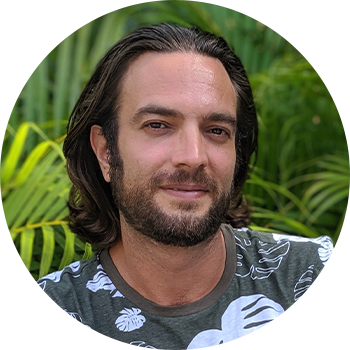
Adam Aronovich is a doctoral candidate in Anthropology and Communications at Universitat Rovira i Virgili in Catalonia, focusing on Medical Anthropology and Cultural Psychiatry. He is an active member of the Medical Anthropology Research Center (MARC) and has spent close to 5 years living and working in the Peruvian Amazon, conducting extensive fieldwork and qualitative research in collaboration with ICEERS, the Beckley Foundation, and, more recently, the Centre for Psychedelic Research at Imperial College. Beyond research, Adam has facilitated healing retreats and workshops in the Peruvian Amazon and, currently in Mexico. He is also a process facilitator and provides preparation and integration support in private practice and the co-founder and COO of Hidden Hand Media, a creative agency in the space of transformation and technology. Additionally, Adam is Media Associate for the Chacruna Institute for Psychedelic Plant Medicines.
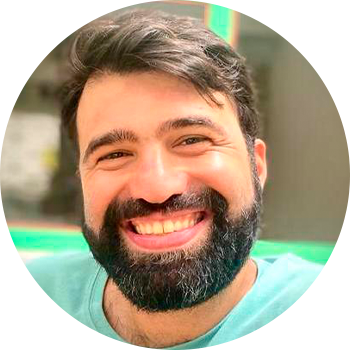
Dr. Glauber Loures de Assis has a Ph.D in sociology from the Federal University of Minas Gerais (UFMG). His main interests include the ayahuasca religions, new religious movements, the internationalization of the Brazilian religions, drug use in contemporary society, and psychedelic parenthood. He is the author of numerous articles and book chapters, and the co-editor of the book Women and Psychedelics: Uncovering Invisible Voices (Synergetic Press/Chacruna Institute, in press). Glauber is also an ayahuasca practitioner with 15 years of experience. He has built this practice in dialogue with his local Brazilian ayahuasca community and with the blessings of Indigenous elders and activists in Brazil. He is also the leader of Jornadas de Kura, a plant medicine center in Brazil. He is father to 3 children and lives with his wife Jacqueline Rodrigues in Santa Luzia, Minas Gerais, Brazil.
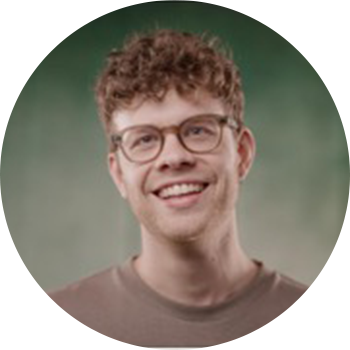
Simon Ruffel studied medicine before specialising in psychiatry. He completed his core psychiatric training at The Maudsley Hospital in London and worked at King’s College London as a Senior Research Associate investigating the use of psilocybin for treatment resistant depression. Since 2016 he has conducted research into the traditional psychedelic brew ayahuasca and co-founded the not-for-profit research organisation Onaya Science. Simon completed his PhD entitled Amazonian Ayahuasca and Mental Health Outcomes at Goldsmiths, University of London. He now works for the Psychae Institute, University of Melbourne as Senior Research Fellow and Chief Medical Officer, running randomised controlled trials investigating the potential therapeutic application of botanical ayahuasca analogues as well as acting as Chief Medical Officer for Heroic Hearts UK, a charity supporting veterans with psychedelic plant medicine. In his spare time Simon volunteers for the charity Psycare, which offers support to individuals undergoing challenging drug experiences at music festivals.
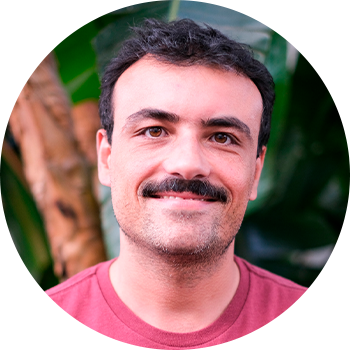
Dr. Henrique Fernandes Antunes has a Ph.D. in anthropology from the University of São Paulo (2019), with a research internship as a visiting scholar at the University of California, Berkeley. He was a postdoctoral fellow at the Centre d’Étude des Mouvements Sociaux (CEMS) of the École des Hautes Études en Sciences Sociales (EHESS), at the Department of Classics and Religious Studies of the University of Ottawa, and at the International Postdoctoral Program of the Brazilian Center of Analysis and Planning (CEBRAP). He holds a master’s degree in anthropology from the University of São Paulo (2012), and a bachelor in social sciences (2006) and anthropology (2008) from the Universidade Estadual Paulista Júlio de Mesquita Filho (UNESP-FFC). He is a member of the research group Religion in the Contemporary World at the CEBRAP. He is also a researcher at the Interdisciplinary Group for Psychoactive Studies (NEIP). Dr. Antunes specializes in the fields of urban anthropology, anthropology of religion, anthropology of secularism, and sociology of public problems. He is Ayahuasca Community Committee Coordinator at the Chacruna Institute for Psychedelic Plant Medicines.
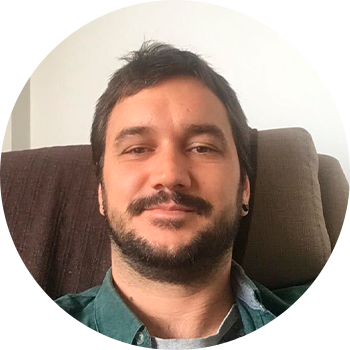
Bruno Ramos Gomes is a Brazilian psychologist, with a Master’s degree in Public Health at the School of Public Health-USP, and a PhD in Public Health at University of Campinas, Brazil. In his masters, he researched the use of ayahuasca in the recovery of homeless people and drug users. In his PhD, he did a 12 month qualitative follow-up of patients treating drug dependence and depression. He has been helping patients integrate ibogaine and ayahuasca in their therapeutic processes for the last 12 years. He is a member of the ICARO (Interdisciplinary Cooperation for Ayahuasca Research and Outreach)-UNICAMP and Chacruna’s Ayahuasca Community Committee.
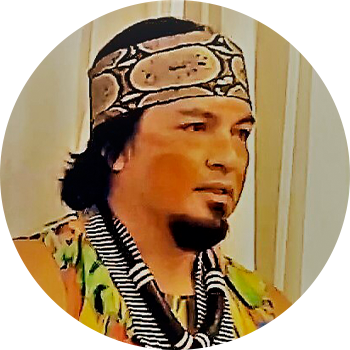
Francisco Apurinã Ywmuniry holds a master’s degree in sustainable development (University of Brasilia), and a PhD in social anthropology (University of Brasil). He is also an environmental educator and president of the Pupykary Institute, an entity made up only of indigenous professionals from the Apurinã people.
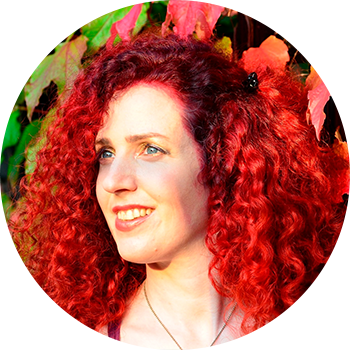
Anna (Anya) Ermakova has a motley background and broad research interests combining nature conservation, ethnobotany, neuroscience and psychiatry, interweaving and connecting these diverse paths through psychedelic science. Anya worked at the forefront of psychedelic research as a science officer at the Beckley Foundation, and has provided psychedelic welfare and harm reduction services with PsycareUK and Zendo. Deep love for nature and wildlife has motivated Anya to study biology at the University of Edinburgh, while a quest to understand altered states of consciousness has prompted her to specialize in neuroscience and later continued during her PhD in psychiatry at Cambridge, where she investigated the origins of psychosis. She then worked for the NHS, developing and trialing a new psychosocial intervention for psychosis. After a brief stint as a clinical trial manager, she had decided to pursue her passion for nature, by studying Conservation Science at Imperial College London, where she researched peyote ecology in Texas, USA. Anya is working as a research consultant in London, is a member of the Board of Directors of the Chacruna Institute for Psychedelic Plant Medicines, and member of Chacruna’s Council for the Protection of Sacred Plants. She is also a board member of the Cactus Conservation Institute.
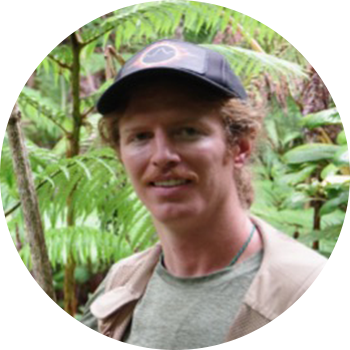
Justin Williams is a botanist and evolutionary biologist with particular interest in systematics, conservation, and ethnobotany. His research questions are largely driven by and inspired through fieldwork and enhanced by museum collections. He graduated with distinction in 2015 from the University of Colorado at Boulder, where his undergraduate thesis focused on the lost history of Banisteriopsis caapi (Malpighiaceae). Immediately after, Justin was awarded an internship at the National Tropical Botanic Gardens on Kauai where he expanded his interests in ethnobotany investigating ‘Awa, or Piper methysticum (Piperaceae). In 2020, Justin received a MSc from the Department of Botany at CU Boulder’s Natural History Museum under the guidance of Dr. Erin Tripp, working on molecular systematics of Hawaii’s endemic Lamiaceae. He has been fortunate enough to conduct botanical fieldwork in beautiful and remote tropical locals around the world, including Hawaii, Peru, Guatemala, Costa Rica, Dominican Republic, and Ecuador in collaboration with institutions such as the New York Botanic Garden, Paris Museum of National History, Bishop Museum, and the USAID program. In addition to plants, organic agriculture, and traveling, he is passionate about teaching, and while at CU assisted teaching Plants and Society, Colorado Field Botany, The Lichen Biome, and Atmospheric and Oceanic Studies, and was selected as a lead instructor to teach Plant Systematics in Spanish at Universidad ISA in the Dominican Republic. Currently, Justin is a PhD student at Harvard University in the lab of Dr. Charles Davis, applying genomics in effort to elucidate the evolutionary history of Banisteriopsis caapi.
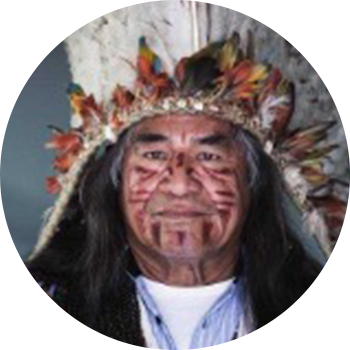
Doéthiro Tukano, baptized as Alvaro Fernandes Sampaio, was born in 1953. He was educated in traditional knowledge by his grandfather Erëmiri. When he was twelve he was taken by his father Ahkïto to study in the boarding school of Pari Cachoeira. Following the intellectual lineage of his family, he became a teacher and was later even invited to be a seminarian. He completed his military service working as a hospital assistant, where he witnessed firsthand the violence suffered by the region’s Indigenous population, which led him to consider a career in medicine. Leaving the Rio Negro region, he understood that genocide of Indigenous people was a reality throughout the Amazon, and Brazil as a whole. He became a militant defender of Indigenous rights. In 1980 at the Russel Tribunal, otherwise known as the International War Crimes Tribunal, he officially denounced the Catholic Church and the Salesian Mission for crimes of genocide and cultural ethnocide of the people of the upper Rio Negro. Doéthiro’s condemnation of the human rights violations of Indigenous peoples led to great political conflicts in Rio Negro, including attacks on Doethiro’s family, who were persecuted by the priests, who even prevented his uncles from pursuing their studies. Doethiro had founded the village Balaio in 1975, to forge a new beginning and revalorize the traditions under attack by the missionaries. Doéthiro dedicated himself to consolidating the formation of the Brazilian Indigenous movement, being one of the first presidents of the Union of Indigenous Nations, and coordinating, along with leaders of other peoples, the ratification of Indigenous rights promulgated by the 1988 Constituent Assembly. Doéthiro also fought for the demarcation of Balaio Indigenous territory, which was finally approved in 2009. Today he continues to powerfully represent the resistance of Indigenous Peoples in Brazil.
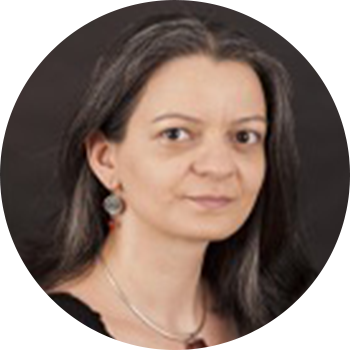
Evgenia Fotiou is a cultural anthropologist researching Indigenous Knowledge Systems, which often encompass both medical and religious knowledge. Specifically, she looks at how these systems get appropriated and reimagined as they become globalized. She has a Ph.D. in cultural anthropology and Latin American studies from the University of Wisconsin-Madison, where she completed doctoral research on Ayahuasca shamanism in Peru and its transformation through globalization and the formation of transnational tourist networks. Dr. Fotiou is an expert in medical anthropology, anthropology of religion, shamanism, Amazonian cultures, and gender and has taught courses on these subjects at UW-Madison, Luther College, and Kent State University. Her current work urges scholars of all disciplines to reexamine assumptions about Indigenous Knowledge Systems and to engage meaningfully with non-Western epistemologies
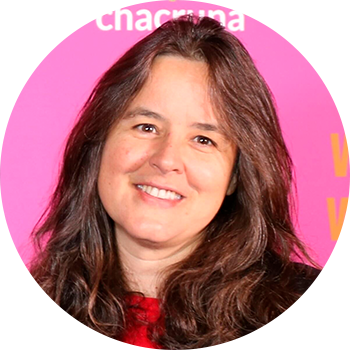
Dr. Beatriz Caiuby Labate (Bia Labate) is a queer Brazilian anthropologist based in San Francisco. She has a Ph.D. in social anthropology from the University of Campinas (UNICAMP), Brazil. Her main areas of interest are the study of plant medicines, drug policy, shamanism, ritual, religion, and social justice. She is Executive Director of the Chacruna Institute for Psychedelic Plant Medicines and serves as Public Education and Culture Specialist at the Multidisciplinary Association for Psychedelic Studies (MAPS). She is also Visiting Scholar at the Graduate Theological Union in Berkeley. Additionally, she is Advisor for the Veteran Mental Health Leadership Coalition and the Soltara Healing Center. Dr. Labate is a co-founder of the Interdisciplinary Group for Psychoactive Studies (NEIP) in Brazil and editor of its site. She is author, co-author, and co-editor of twenty-eight books, two special-edition journals, and several peer-reviewed articles (https://bialabate.net).
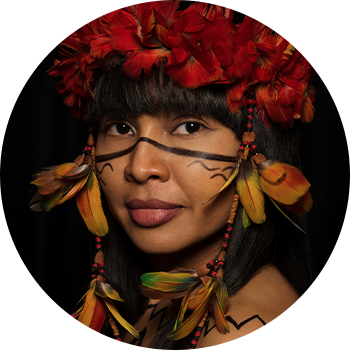
Adana Omágua Kambeba (Portuguese name Danielle Soprano Pereira) belongs to the Kambeba people, also known as the Omágua people, which translates as the “People of the Waters”. The Omágua people are present in the Peruvian, Colombian and Brazilian Amazon. Adana comes from the Brazilian state of Amazonas. She was born and raised between two worlds; the Indigenous and non-indigenous. She graduated in medicine from the Federal University of Minas Gerais (UFMG). As far as she is aware, she is the first Indigenous woman of her people to graduate in medicine in her country, in addition to being the first doctor to overturn convention and obtain authorization to register both her names, her Portuguese and Indigenous, with the Federal Council of Medicine (CFM). She currently works in the city of Belo Horizonte at the Sofia Feldman Hospital, a benchmark hospital in humanized childbirth and women’s health care, at the Novo Aarão Reis Health Center in Family and Community Medicine. She also works as a prescriber of medical cannabis. In addition to her practice as a doctor, she is a researcher and is dedicated to the study of the cultural identity of her people. Additionally, she is an educator, speaker, and actress who has appeared in films and miniseries. She is currently in the process of training as a pajé (Indigenous medicine person) to be able to act both as a doctor and pajé in the Amazon region in the future. Adana sits on the Advisory Board of the Chacruna Institute for Psychedelic Plant Medicines.
Take a minute to browse our stock:
Did you enjoy reading this article?
Please support Chacruna's work by donating to us. We are an independent organization and we offer free education and advocacy for psychedelic plant medicines. We are a team of dedicated volunteers!
Can you help Chacruna advance cultural understanding around these substances?


